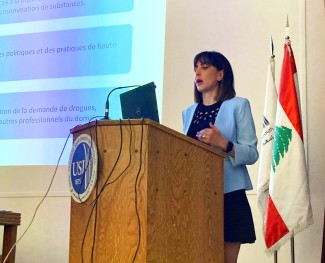Mental Health & Addiction are interconnected. Mental disorders such as anxiety, depression, or post-traumatic stress may lead to addiction, yet there is always a chance to minimize the consequences and avoid a more complicated situation through preventive measures. In this session, organised by the SBC Health Group, our guest speakers will help the audience better understand this link, what is happening physically and mentally, what are the risk factors, how addiction manifests, what are the issues and possible consequences connected. But also, not to be too grim - what can be done about it...
